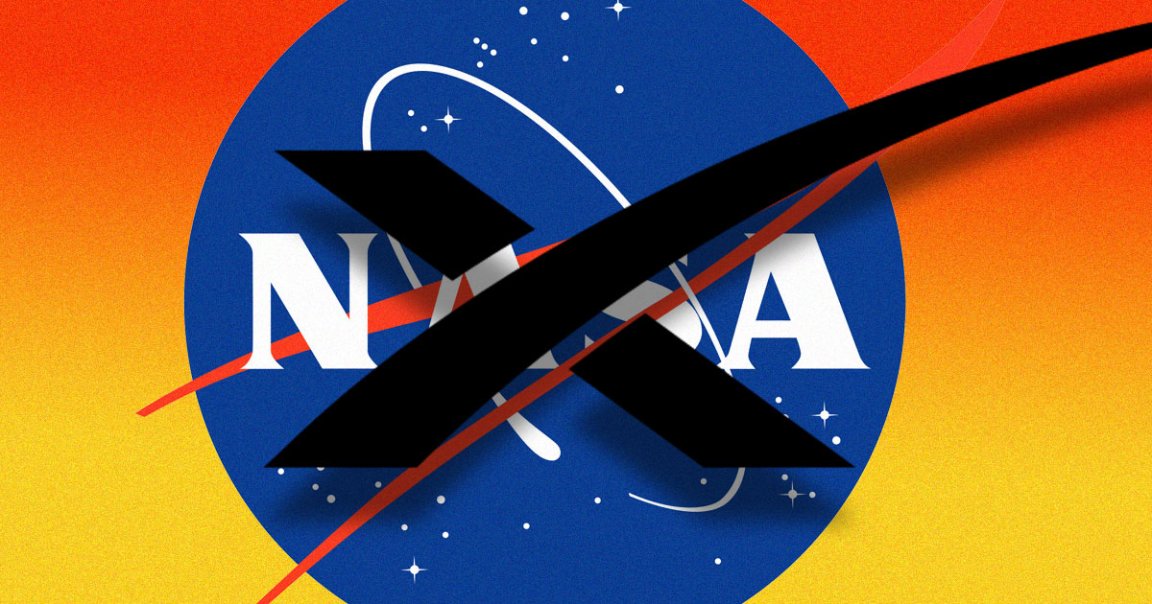
The future of NASA is uncertain, with the chaotic start of president Donald Trump’s second term raising plenty of unanswered questions regarding the space agency’s fate.
Amid a leadership vacuum, SpaceX CEO Elon Musk — who’s effectively calling the shots for the federal government at the moment — has yet to clarify what’s to become of some of the biggest hallmark projects the space agency has been working on for decades now.
As Ars Technica‘s Eric Berger points out, it’s not a stretch to assume that Musk’s private space venture will determine where NASA is headed next, with both him and Trump reiterating their desire to deliver humans to Mars, which could come at the cost of NASA’s Moon program.
Trump also nominated billionaire tech founder — and SpaceX space tourist — Jared Isaacman as the next head of NASA, suggesting an increasingly close relationship between the agency and one of its biggest contractors. But, typifying the chaos surrounding the Trump administration, when Isaacson will actually take over the agency remains unclear.
Add it all up, and there’s so much uncertainty that morale at NASA is “absurdly low,” as one NASA source told Berger.
We don’t know what will happen to NASA’s already ill-fated Mars Sample Return plan, we don’t know if the space agency will keep supporting operations on board the International Space Station, and we don’t know what will happen to the Artemis Program, nevermind what role SpaceX will play in all of this.
The agency is essentially in limbo right now, with interim administrator Janet Petro busying herself with clearing the agency of any references to the administration’s current boogeyman: “diversity, equity, inclusion, and accessibility.”
The warning signs of a SpaceX takeover are certainly there. According to Ars, Petro announced on Friday that former SpaceX head of human spaceflight programs Michael Altenhofen had been appointed as a “senior advisor to the NASA administrator.”
Isaacman will have a busy schedule as he picks up the pieces. Many signs point toward a greatly diminished role of scientific research, with NASA directing a number of science committees to pause their work, citing recent Trump executive orders.
Meanwhile, Musk has made a big deal out of “rescuing” NASA astronauts Butch Wilmore and Suni Williams, who have been stranded on board the International Space Station since last summer due to issues plaguing Boeing’s Starliner spacecraft.
That’s despite the pair having been scheduled back in August to board a Crew Dragon spacecraft for their return sometime next month.
NASA’s international collaborators, including the European Space Agency, are waiting in the wings, trying to get a clearer picture of the chaos going on behind the scenes and how that may affect future partnerships.
Despite a geopolitically fraught couple of weeks, Isaacman has remained surprisingly quiet, retweeting archival pictures of Air Force jets instead of weighing in on the chaos in DC.
Add it all up, and the state of the United States space program is in tatters. Will NASA still attempt to land the first astronauts on the surface of the Moon in over half a century in the next two and a half years? Or will SpaceX’s priorities supersede the agency’s?
Right now, virtually any outcome seems to be on the table. In other words, we should learn to expect the unexpected.
More on NASA: Trump Begins Purge of DEI NASA Employees